
Bitam: The Gateway to Gabon's Natural Wonders
Bitam is a charming town in northern Gabon, nestled close to the borders with Cameroon and Equatorial Guinea. This strategic location makes it a perfect starting point for exploring the rich diversity of Central Africa. Bitam is surrounded by lush greenery and is known for its warm and welcoming atmosphere, making it an excellent destination for tourists seeking both adventure and relaxation. The town's proximity to the Ivindo National Park offers nature enthusiasts a unique opportunity to witness Gabon's incredible biodiversity. From majestic elephants to playful gorillas, the park is a sanctuary for various wildlife species. Additionally, the park's stunning waterfalls and dense forests provide a picturesque backdrop for hiking and photography. Bitam's local markets are a vibrant display of Gabonese culture. Here, visitors can immerse themselves in the daily life of the locals, sample traditional dishes, and purchase handcrafted souvenirs. The town's culinary scene is a delightful mix of local flavors and influences from neighboring countries, ensuring that every meal is a new adventure. For history buffs, Bitam offers a glimpse into Gabon's colonial past with its quaint architecture and historical landmarks. The town's friendly locals are always eager to share stories and legends, adding a personal touch to every visit. Whether you're exploring the natural beauty of the region or delving into its rich history, Bitam is sure to leave a lasting impression.
Local tips in Bitam
- Visit the Ivindo National Park early in the morning for the best chances of wildlife sightings.
- Carry local currency, as many markets and smaller establishments do not accept credit cards.
- Try the local dish 'Poulet Nyembwe', a chicken stew with palm nut sauce, for an authentic Gabonese culinary experience.
- Learn a few basic French phrases; it will help you communicate more effectively with the locals.
- Wear comfortable walking shoes, as exploring the town and its surroundings often involves a lot of walking.
- Respect local customs and traditions, especially when visiting religious or historical sites.
When is the best time to go to Bitam?
Iconic landmarks you can’t miss
Marché Mont Bouët
Discover the colorful culture and local flavors at Marché Mont Bouët, the heart of Libreville's lively market scene.
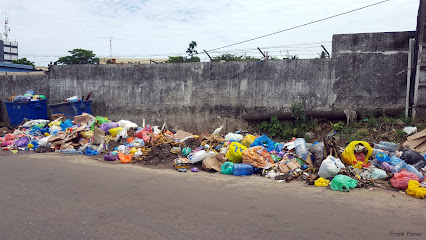
Sibang Arboretum
Discover the tranquil beauty of Sibang Arboretum in Libreville, a perfect escape for nature lovers and a glimpse into Gabon's rich biodiversity.
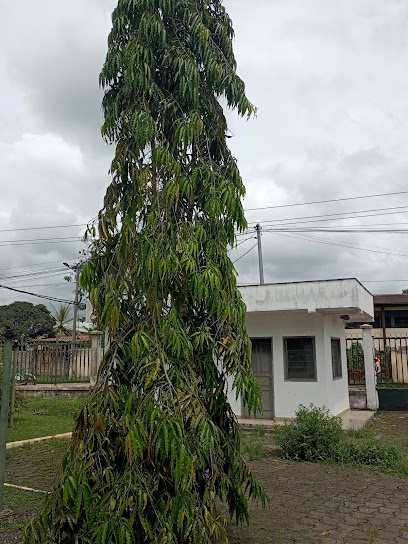
Akanda National Park
Explore Akanda National Park's breathtaking landscapes, abundant wildlife, and serene beaches on your Gabon adventure.
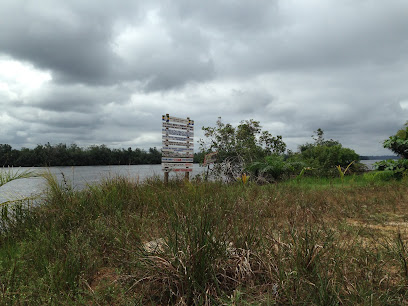
Lopé National Park
Explore the breathtaking landscapes and diverse wildlife of Lopé National Park, a true gem of Gabon's natural heritage.
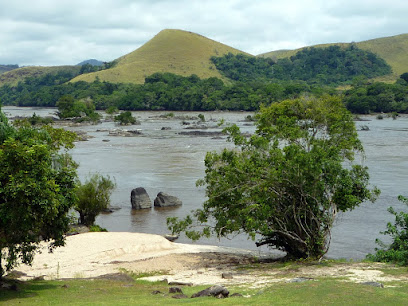
National Museum of Arts, Rites and Traditions of Gabon
Explore the rich cultural heritage of Gabon at the National Museum of Arts, Rites and Traditions, showcasing artifacts and traditions that define a nation.
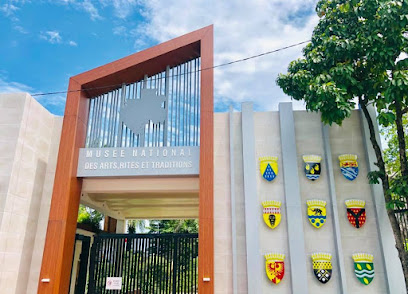
Clark
Discover the tranquil beauty and spiritual essence of Clark Shrine, a cultural gem in the heart of Libreville, Gabon.
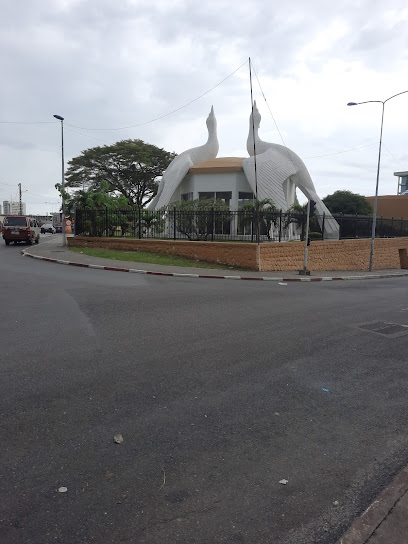
Unmissable attractions to see
Sibang Arboretum
Discover Gabon's biodiversity in the heart of Libreville at Sibang Arboretum, a natural escape with diverse tree species and tranquil scenery.
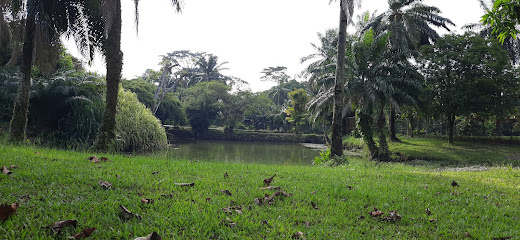
Lopé National Park
Explore Lopé National Park: Gabon's UNESCO gem with diverse wildlife, lush landscapes, and ancient history.
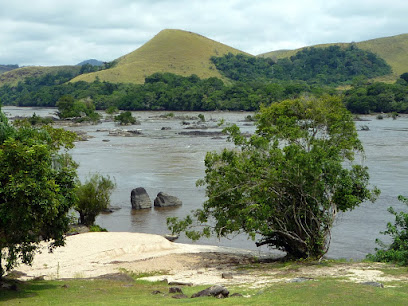
Minkébé National Park
Explore Minkébé National Park, Gabon: a remote haven of biodiversity, home to forest elephants, gorillas, and pristine rainforests, and a proposed World Heritage Site.
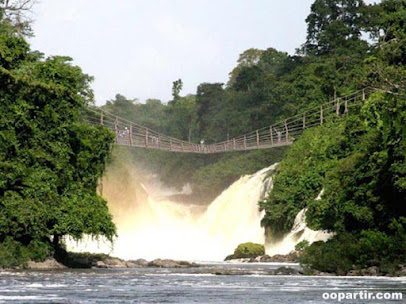
Essential places to dine
Chez Jeannot
Experience authentic Gabonese flavors at Chez Jeannot in Libreville - where every dish tells a story!
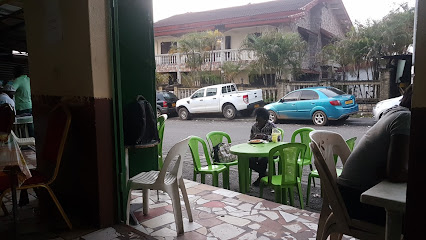
BANTU Restaurant – Restaurant – Bar – Pizzeria
Discover the flavors of Gabon at BANTU Restaurant – where pizza meets local cuisine in a vibrant atmosphere.
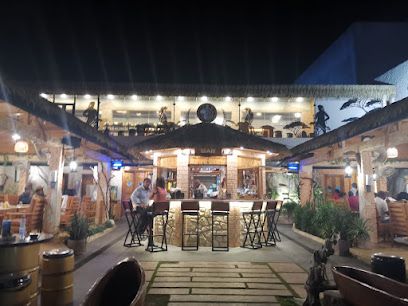
La Voile Rouge
Experience the vibrant flavors of Gabon at La Voile Rouge in Libreville – where culinary tradition meets modern elegance.
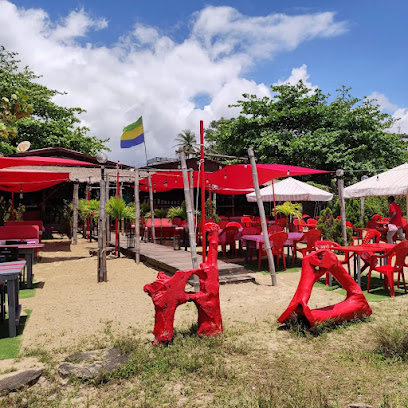
Beach Club
Experience exquisite French and African cuisine at Beach Club in Libreville—your tropical escape for delightful dining.
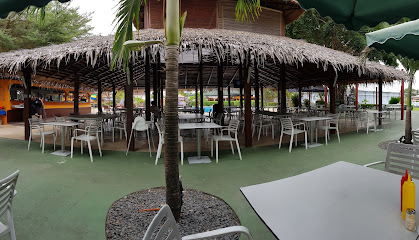
Le Moulin d'Okala
Experience culinary bliss at Le Moulin d'Okala in Libreville - where fresh ingredients meet delightful flavors in every bite.
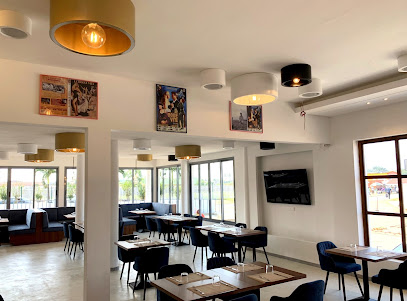
Lamaia Lounge Bar & Restaurant
Discover exquisite French cuisine blended with local flavors at Lamaia Lounge Bar & Restaurant in Libreville – an unmissable dining experience.
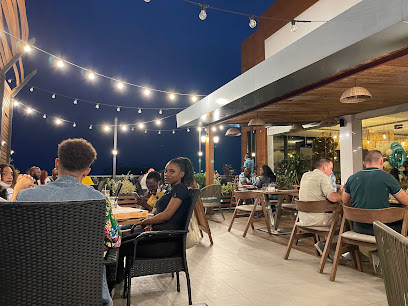
Delektable
Experience delectable dining at Delektable in Libreville—where local flavors meet international cuisine in a vibrant setting.
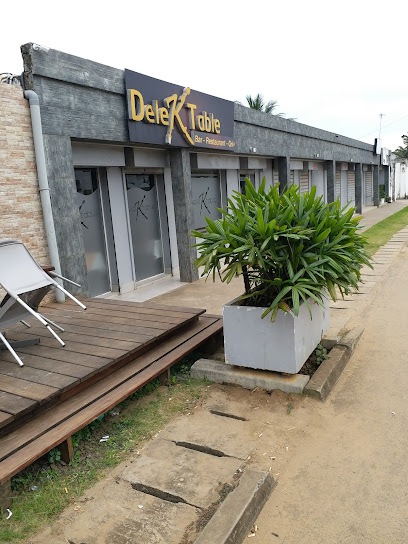
Roma Restaurant & Hotel
Experience authentic Italian cuisine and cozy accommodations at Roma Restaurant & Hotel in Libreville – a true culinary gem!
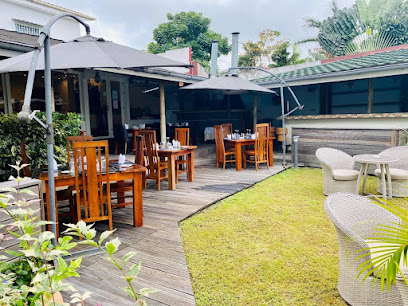
Amigo's Restaurant
Discover the flavors of Gabon at Amigo's Restaurant in Libreville - where local cuisine meets international flair in an inviting atmosphere.
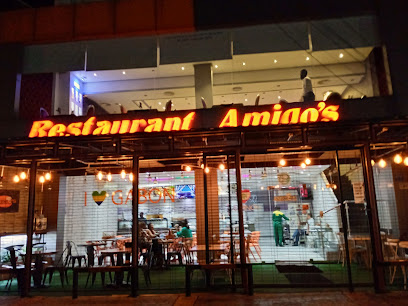
Bodega Mbolo
Experience the vibrant flavors of Gabon at Bodega Mbolo in Libreville - where local meets international cuisine in a lively atmosphere.
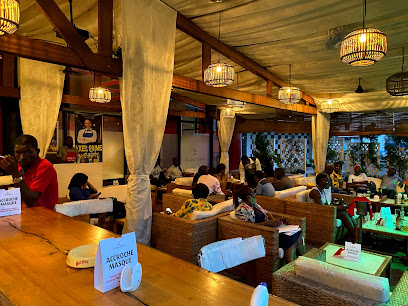
L'Odika
Discover the authentic taste of Africa at L'Odika in Libreville, where every meal tells a story.
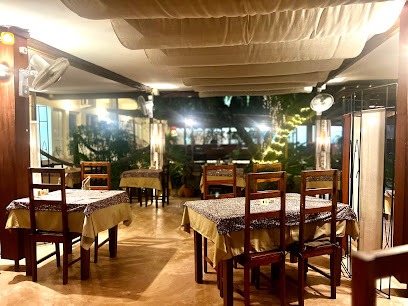
L’iroko
Experience the rich flavors of Gabon at L’iroko, where tranquility meets exquisite dining in Libreville's vibrant atmosphere.
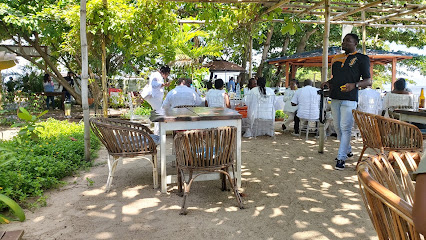
L'assiette d'or
Experience delightful dining at L'assiette d'or in Libreville—where local flavors meet international cuisine in a warm atmosphere.
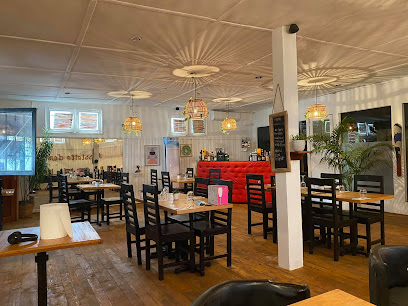
Eat vite bord de mer
Experience authentic Lebanese cuisine with stunning ocean views at Eat vite bord de mer in Libreville.
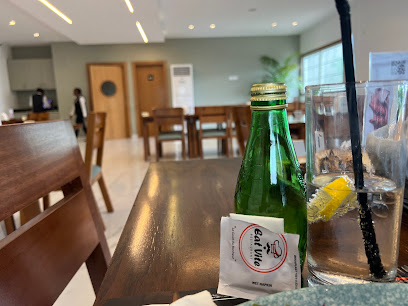
Restaurant LYNN'S
Discover the taste of Gabon at Restaurant LYNN'S in Libreville – a culinary gem blending local traditions and global flavors.
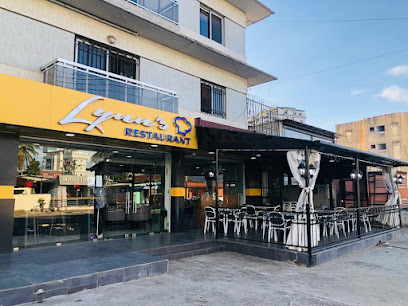
Markets, malls and hidden boutiques
Marché De Bitam
Explore the vibrant Marché De Bitam, a local grocery store filled with fresh produce, unique crafts, and the essence of Gabonese culture.
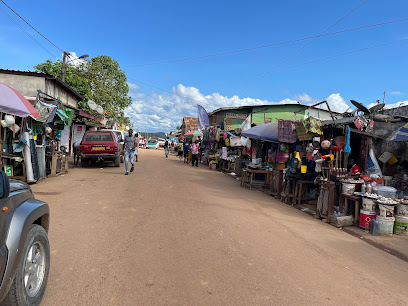
Cecado
Discover the charm of local shopping at Cecado, a general store in Oyem filled with everyday essentials and cultural treasures.
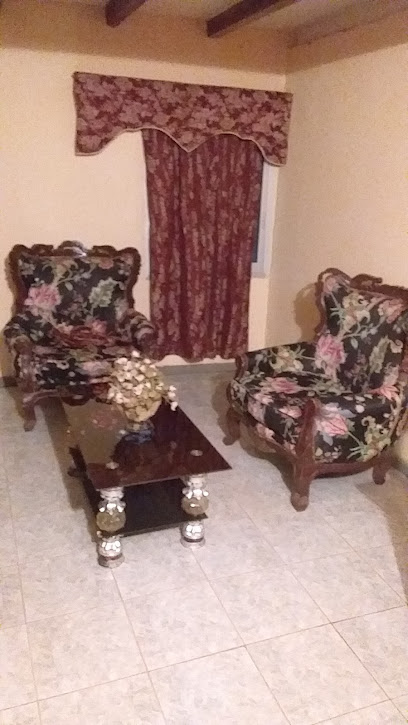
Marché Gouema
Discover the vibrant flavors of Oyem at Marché Gouema, your go-to supermarket for fresh produce and local delicacies.
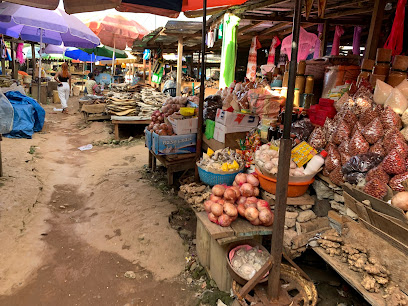
Supermercado Champion
Discover the flavors of Ebebiyin at Supermercado Champion, your ultimate destination for fresh produce and local delicacies.
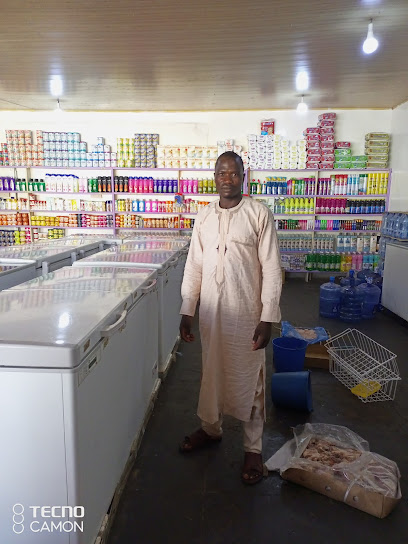
Enami Shop
Explore Enami Shop in Port-Gentil for stylish clothing for men, women, and children, blending local charm with international fashion trends.

GABON shopping
Explore the vibrant clothing stores of Libreville, Gabon, where fashion meets local culture for a unique shopping experience.

Sobraga Angone
Explore Sobraga Angone: The Heart of Shopping in Oyem, Where Local Crafts Meet Affordable Prices.

Espace Marguerite
Explore Espace Marguerite in Oyem for fresh local produce and authentic Gabonese snacks, a must-visit for every traveler.

Belle & bien Shop
Explore Belle & bien Shop in Libreville for unique beauty supplies, stylish clothing, and exquisite leather goods that capture the essence of Gabon.

Pharmacie Ada
Discover Pharmacie Ada in Oyem: Your go-to pharmacy for health essentials and expert advice during your travels.
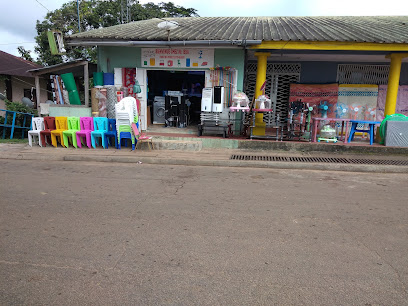
GEO Gabon Shop Online
Explore unique multimedia products, computer accessories, and local crafts at GEO Gabon Shop Online in the heart of Libreville.
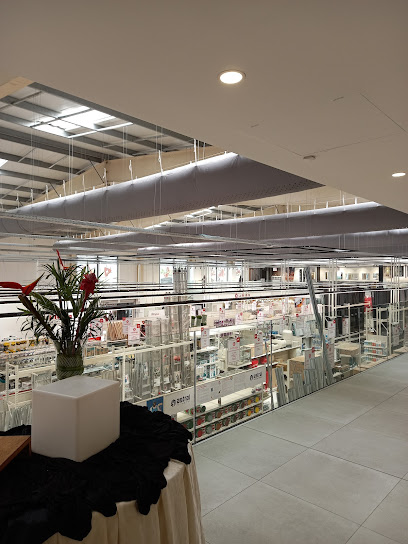
Carrefour Bitam 1
Discover the vibrant flavors of Gabon at Carrefour Bitam, your go-to grocery store for local and international products in Bitam.
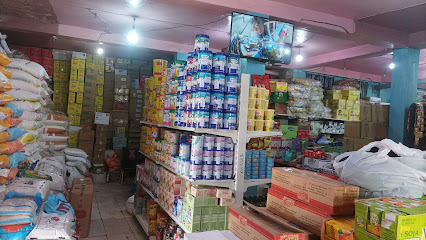
ETS Carrefour des amis
Explore the vibrant ETS Carrefour des amis in Bitam, where local culture and unique shopping experiences come together.
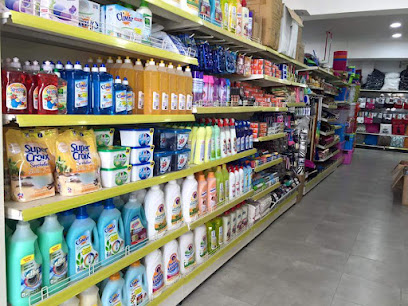
Tougou Tougou
Discover the vibrant flavors of Oyem at Tougou Tougou, your go-to grocery store for fresh produce and local specialties on your travels.

Centre Don-Bosco
Explore unique home goods and local craftsmanship at Centre Don-Bosco in Oyem, a must-visit for every traveler.

Essential bars & hidden hideouts
Bénédicta hôtel Bitam
Discover comfort and local charm at Bénédicta Hôtel Bitam, your perfect base for exploring the vibrant culture of Gabon.
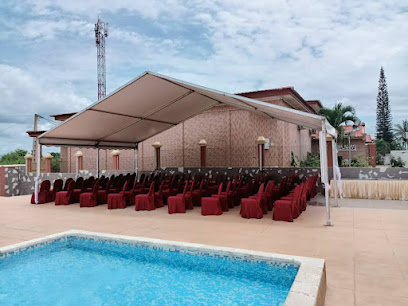
Bitam Airport
Discover the vibrant culture and lush landscapes of Gabon through Bitam Airport, your gateway to adventure and exploration.
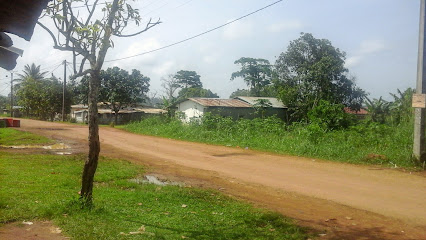
Motel Bar L'horizon
Discover comfort and convenience at Motel Bar L'horizon in Bitam, your ideal base for exploring Gabon's natural beauty and cultural richness.
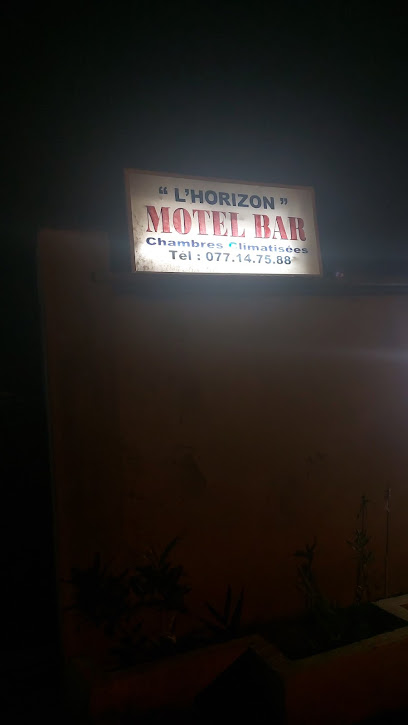
Démocratie Bar
Discover the lively Démocratie Bar in Bitam, where local flavors meet vibrant nightlife, perfect for tourists seeking authentic experiences.
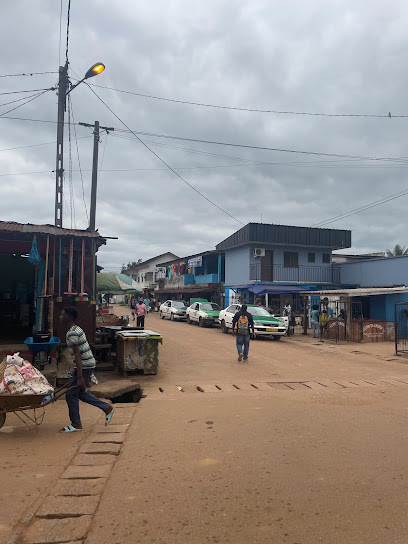
Carrefour Bitam 1
Experience local flavors and convenience at Carrefour Bitam 1, the premier grocery destination in Bitam, Gabon.
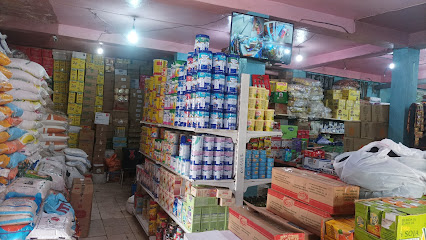
BCBG BAR LOUNGE
Discover the elegance of BCBG Bar Lounge in Oyem, where Gabon's nightlife comes alive with stylish drinks and a vibrant atmosphere.

rodys michael
Discover the heart of Oyem at Rody's Michael, a lively pub offering a vibrant atmosphere, delicious drinks, and a taste of local culture.

Restaurant bar Le Tournant chez asmaud
Experience the lively atmosphere and local culture at Le Tournant chez Asmaud, a must-visit bar in Oyem for refreshing drinks and great company.

Chez Pahé
Discover the vibrant nightlife of Eboro at Chez Pahé, a lively bar offering a unique blend of local culture and refreshing beverages.

Local Phrases
-
- HelloMbolo
[em-bo-lo] - GoodbyeOrevwa
[o-rev-wa] - YesEe
[ay] - NoTey
[tey] - Please/You're welcomeNkoyo
[en-ko-yo] - Thank youMèsi
[may-see] - Excuse me/SorryMèsi
[may-see] - How are you?Wafa?
[wa-fa] - Fine. And you?Nzima. Njé?
[n-zee-ma. n-jay] - Do you speak English?Wôlè wôlè mò Engles?
[woh-lay woh-lay maw eng-gles] - I don't understandMandza mwa
[man-ja mwa]
- HelloMbolo
-
- I'd like to see the menu, pleaseMé bônda menu, nkoyo
[may bon-da menu, en-ko-yo] - I don't eat meatMandza ka kwa
[man-ja ka kwa] - Cheers!San-té!
[san-tay] - I would like to pay, pleaseMé bôka pè, nkoyo
[may bo-ka pay, en-ko-yo]
- I'd like to see the menu, pleaseMé bônda menu, nkoyo
-
- Help!Aidé!
[ay-de] - Go away!Ntéka!
[en-tey-ka] - Call the Police!Wôlè mô Polis?
[woh-lay maw po-lees] - Call a doctor!Wôlè mô ndôktè?
[woh-lay maw en-dok-tay] - I'm lostNtôndè
[en-ton-day] - I'm illMandza nâ
[man-ja na]
- Help!Aidé!
-
- I'd like to buy...Mé bôka...
[may bo-ka] - I'm just lookingNtâmba
[en-tam-ba] - How much is it?Nkômbô nâ?
[en-kom-bo na] - That's too expensiveMkôm nâ nkômbô
[m-kom na en-kom-bo] - Can you lower the price?Wôlè mô bôtô nâ nkômbô?
[woh-lay maw bo-to na en-kom-bo]
- I'd like to buy...Mé bôka...
-
- What time is it?Nkômbô wôra?
[en-kom-bo wo-ra] - It's one o'clockNkômbô wôra nâ mèkô
[en-kom-bo wo-ra na me-ko] - Half past (10)Nkômbô wôra nâ mèkô
[en-kom-bo wo-ra na me-ko] - MorningNkômbô
[en-kom-bo] - AfternoonNkômbô nâ
[en-kom-bo na] - EveningNkômbô nâ mèkô
[en-kom-bo na me-ko] - YesterdayNkômbô nâ mèkô
[en-kom-bo na me-ko] - TodayNkômbô nâ mèkô
[en-kom-bo na me-ko] - TomorrowNkômbô nâ mèkô
[en-kom-bo na me-ko] - 1Nkômbô
[en-kom-bo] - 2Nkômbô
[en-kom-bo] - 3Nkômbô
[en-kom-bo] - 4Nkômbô
[en-kom-bo] - 5Nkômbô
[en-kom-bo] - 6Nkômbô
[en-kom-bo] - 7Nkômbô
[en-kom-bo] - 8Nkômbô
[en-kom-bo] - 9Nkômbô
[en-kom-bo] - 10Nkômbô
[en-kom-bo]
- What time is it?Nkômbô wôra?
-
- Where's a/the...?Nkômbô wôra?
[en-kom-bo wo-ra] - What's the address?Nkômbô wôra?
[en-kom-bo wo-ra] - Can you show me (on the map)?Wôlè mô Polis?
[woh-lay maw po-lees] - When's the next (bus)?Wôlè mô Polis?
[woh-lay maw po-lees] - A ticket (to ....)Wôlè mô Polis?
[woh-lay maw po-lees]
- Where's a/the...?Nkômbô wôra?
History of Bitam
-
Bitam, situated in the Woleu-Ntem Province of Gabon, boasts a rich history that dates back centuries. The area was originally inhabited by the Fang people, known for their intricate wooden sculptures and vibrant oral traditions. The Fang migrated from the north, settling in the dense forests of the region. Their cultural practices, including the Bwiti religion, have significantly shaped the local heritage.
-
During the late 19th century, Bitam became a focal point of French colonial ambitions in Central Africa. The French established their presence in the area, leading to significant changes in the local way of life. The construction of colonial infrastructure, including roads and administrative buildings, marked the beginning of modern Bitam. The French influence is still evident in the architecture and the use of the French language in official and educational contexts.
-
Gabon gained independence from France on August 17, 1960. Following independence, Bitam experienced several developmental changes. The establishment of educational institutions and healthcare facilities improved the quality of life for its residents. Political stability in the region allowed for the growth of local businesses and tourism, making Bitam a key town in northern Gabon.
-
Bitam is renowned for its vibrant cultural festivals that celebrate the heritage of the Fang people. The most notable is the Bwiti ceremony, a spiritual ritual that involves music, dance, and the use of the sacred iboga plant. These festivals provide a glimpse into the rich cultural tapestry of Bitam and attract visitors from around the world. Traditional crafts, such as wooden mask carving and weaving, continue to thrive and are a testament to the enduring cultural practices of the region.
-
Bitam is surrounded by lush rainforests and is in close proximity to national parks like Minkébé National Park, which is home to a diverse array of wildlife including elephants, gorillas, and numerous bird species. The area's natural beauty and biodiversity make it a popular destination for eco-tourism. Conservation efforts in the region aim to preserve these natural habitats while promoting sustainable tourism practices.
-
In recent years, Bitam has seen significant economic growth, driven by advancements in agriculture, commerce, and tourism. The town's strategic location near the borders of Cameroon and Equatorial Guinea has facilitated cross-border trade. Modern amenities such as improved road networks, hotels, and restaurants have enhanced the visitor experience, making Bitam a burgeoning hub for both business and leisure travel.
Bitam Essentials
-
Bitam is located in the Woleu-Ntem province in northern Gabon, near the borders with Cameroon and Equatorial Guinea. The nearest major airport is in Libreville, the capital city of Gabon, approximately 300 kilometers away. From Libreville, you can take a domestic flight to Oyem, which is the nearest airport to Bitam, located about 70 kilometers away. From Oyem, you can take a taxi or a bus to reach Bitam. Alternatively, you can travel by road from Libreville to Bitam, which takes around 6-8 hours depending on road conditions.
-
Bitam is a relatively small town, and many places can be reached on foot. For longer distances, taxis are readily available and are an affordable way to get around. Public minibuses, known as 'clandos,' also operate within the town and to nearby areas. If you prefer more flexibility, you can rent a car, but be aware that road conditions can vary, and it’s advisable to rent a 4x4 vehicle.
-
The official currency in Gabon is the Central African CFA franc (XAF). Credit cards are accepted in some hotels, restaurants, and larger shops, but cash is preferred, especially in smaller establishments and rural areas. It is advisable to carry sufficient cash with you, as ATMs may not always be available or reliable. Ensure you exchange money at official exchange offices or banks to get a fair rate.
-
Bitam is generally a safe destination for tourists. However, it is important to exercise standard precautions. Avoid walking alone at night and be cautious of your belongings in crowded areas. While crime rates are relatively low, areas such as the main market can sometimes have pickpockets. Always stay vigilant and aware of your surroundings.
-
In case of emergency, dial 177 for police assistance, 1300 for medical emergencies, and 180 for the fire department. Bitam has a local police station and a hospital that can handle most medical emergencies. It is highly recommended to have travel insurance that covers medical emergencies and evacuation, as more serious conditions may require transport to larger medical facilities in Libreville or even abroad.
-
Fashion: Do dress modestly. Light, breathable clothing is advisable due to the tropical climate. Avoid wearing flashy jewelry or expensive accessories. Religion: Do respect local customs and traditions. When visiting religious sites, dress conservatively and ask for permission before taking photographs. Public Transport: Do be patient and courteous. Don't expect rigid schedules; minibuses operate on flexible timings. Greetings: Do greet people with a handshake and a friendly smile. It’s polite to ask about their well-being. Eating & Drinking: Do try local dishes and accept food offerings graciously. Don’t refuse food outright as it is considered impolite.
-
To experience Bitam like a local, visit the local markets where you can buy fresh produce and traditional Gabonese goods. Engage with locals; they are often friendly and willing to share stories about the town's history and culture. Don't miss the opportunity to explore the natural surroundings, such as the Wonga Wongue Presidential Reserve and the Ivindo National Park. For a unique experience, attend a traditional Fang dance performance or a local festival to immerse yourself in the local culture.
Nearby Cities to Bitam
-
Things To Do in Ebolowa
-
Things To Do in Yaoundé
-
Things To Do in Kribi
-
Things To Do in Mbini
-
Things To Do in Edea
-
Things To Do in Douala
-
Things To Do in Libreville
-
Things To Do in Bafia
-
Things To Do in Tiko
-
Things To Do in Limbe
-
Things To Do in Buea
-
Things To Do in Lambaréné
-
Things To Do in Malabo
-
Things To Do in Luba
-
Things To Do in Nkongsamba



